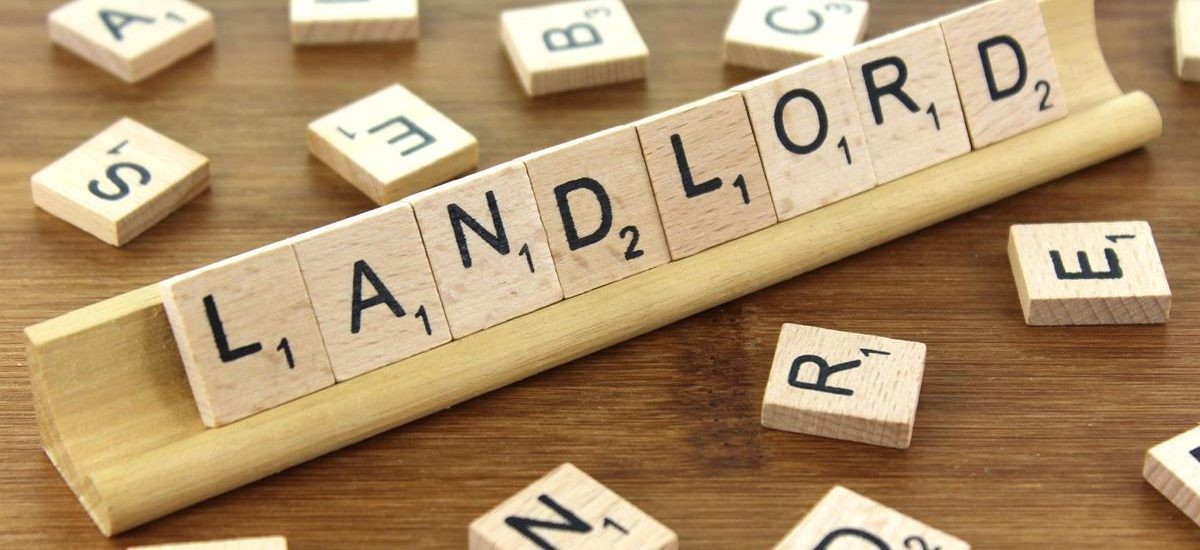Legislation requires that safety checks be made before the property can be let. We will help where possible to advise or suggest a qualified contractor to assist you from our approved contractors list.
EICR (Electrical safety report)
All landlords must have an EICR (Electrical safety report) carried out on their property before a move in and it must be checked every 5 years.
The new regulations, titled The Electrical Safety Standards in the Private Rented Sector (England) Regulations 2020, were officially brought in on 1st April 2020. In July 2020, all new tenancies required an EICR. As of 1st April 2021, this requirement applies to all tenancies – new and existing.
The Gas Safety (Installation & Use) Regulations 1998
A Gas Safety Record (GSR) is a mandatory requirement that all gas appliances, pipes and flues are in safe working order. It must be carried out by a qualified Gas Safe Register engineer. This needs to be checked every 12 months. Knights removes the stress by arranging this for you, if you do not already have one in place.
Legionella Risk Assessment
As a landlord you have a duty of care to your tenants to make sure your water supply is working properly to protect them from Legionella.
The Furniture and Furnishings (Fire) (Safety) Regulations 1988 (amended 1989 & 1993) (Consumer Protection Act 1987)
If you are furnishing your rented property, you must ensure that all furnishings comply with these regulations. Knights can give advice on which furniture items need to be compliant and all compliant furniture must display standard labels in a prominent position. This is to reduce the risk of fire within the property.
The Electrical Equipment (Safety) Regulations 1994 and Low Voltage Electrical Equipment Regulations 1989 (Consumer Protection Act 1987)
You are required to ensure that any electrical devices within the property are safe for use. We recommend an Installation Survey or Portable Appliance Testing (PAT) so you can be sure you are compliant.
The Smoke and Carbon Monoxide Alarm (Amendment) Regulations 2022
This came into force on 1 October 2022. All relevant landlords must:
1. Ensure at least one smoke alarm is equipped on each storey of their homes where there is a room used as living accommodation. This has been a legal requirement in the private rented sector since 2015.
2. Ensure a carbon monoxide alarm is equipped in any room used as living accommodation which contains a fixed combustion appliance (excluding gas cookers).
3. Ensure smoke alarms and carbon monoxide alarms are repaired or replaced once informed and found that they are faulty.
The alarms must be checked to make sure they are working on the first day of any new tenancy but it is then the responsibility of the tenant to regularly check the alarms are in working order during their tenancy – the Department for Community and Local Government recommend you check the alarms once a month and if they are not working, report it as a maintenance issue.
Tenancy Deposit Scheme
Landlords and letting agents are required to register a tenant’s deposit with an approved Tenancy Deposit Scheme. A Tenancy Deposit Scheme protects the tenant’s money and can help to resolve any disputes at the end of the tenancy. At Knights, we register deposits with MyDeposits. We will handle the administration of the protection of the security deposit and provide your tenant with all the details of the scheme.
Housing, Health and Safety Rating System (HHSRS)
Introduced as part of the Housing Act 2004, the HHSRS allows local authorities to assess the condition of the property and any potential hazards. The aim is to maintain good standards in the private rented sector. Knights can help you understand how this legislation may apply to your property.
The How to Rent Guide – the checklist for renting in England (for England only)
A new tenant should always receive a Department of Local Government and Communities How to Rent Guide at the start of their tenancy from their lettings agent which gives practical advice about what to do before and during a let. A guide which the tenant must confirm they have seen at the start of a new tenancy.
Income Tax
All landlords could be liable to pay tax on their rental income, whether they live in the UK or are based overseas. Further information can be found on the Inland Revenue’s website: www.hmrc.gov.uk/index.htm
Right to Rent Regulation April 2016
The Right to Rent scheme, which helps to make sure that people renting property in the UK have a legal right to be here, was rolled out across England in April 2016. At Knights we’ve been doing this as part of our referencing process for many years, but if you carry out your own checks you will now need to make sure you get an acceptable proof of residency or risk a fine. If we do not currently handle tenant checks for you, we’d be very happy to discuss how we can help you with this.
Houses in Multiple Occupation (HMO)
When you let to sharing occupants who are not a family group you will need to comply with rules around Houses in Multiple Occupation (HMO)
Energy Performance Certificate Regulations
An Energy Performance Certificate, or EPC is a report detailing the energy efficiency of a property. It gives a property an energy efficiency rating from A (most efficient) to G (least efficient) and is valid for 10 years. All landlords are required to purchase an EPC for a property before they let it. It is also a requirement that letting agents display the EPC when marketing the property. If a property does not have an EPC when marketed, the landlord and the agent risk a fine.
Minimum enercy efficiency standards from 1st April 2018
From 1st April 2018 there is a requirement for any properties rented out in the private rented sector to have a minimum energy performance rating of E on an Energy Performance Certificate (EPC). The regulations came into force for new lets and renewals of tenancies with effect from 1st April 2018 and for all existing tenancies from 1st April 2020. It is unlawful to rent a property which breaches the requirement for a minimum E rating, unless there is an applicable exemption. A civil penalty of up to £4,000 will be imposed for breaches. This guidance summarises the regulations.
Knights intend to provide this information here as a guidance only. For full details landlords should refer to the full regulations. This information could date as regulations are updated. It is not an authoritative interpretation – which would be a matter for the courts. Knights can provide their landlords with a full copy of the relevant and up to date regulations, upon request.
Will I have to pay tax on my letting income?
Not necessarily; it all depends on your personal financial circumstances. For example, if the property being let is mortgaged and the mortgage, together with the related costs of property upkeep, exceed the rent you receive, then it is possible that no tax will be payable.
Letting my property
Income tax is payable on rent received from a property that is let. Your tax position will determine whether you pay tax or not. All profit you make from letting should be added to your other taxable income for the year, although the financial records for letting must still be kept separately. You have to pay income tax if the total of your taxable income is greater than your tax allowance.
Can expenses be offset against the rent received?
Only those expenses incurred “wholly and exclusively” for the purpose of the let can be offset against your letting income. These might include general repairs and maintenance, insurance and of course, your agent’s property management fees.
The records you will need to keep
You need to keep a record of all income and expenditure incurred in relation to all lettings. The records should show to whom payments have been made and from whom income has been received.
Who is responsible for my tax?
You are. You are obliged to submit all the relevant information to the HMRC annually to account for all your letting income.
Is this the same if I am a landlord living abroad?
As your letting agents, we are obliged to deduct tax from all rental income, unless the HMRC provides us with an approval number from The Non-Resident Landlords (NRL) Scheme. If the property is owned by more than one person, then an approval number will be required for each party, otherwise a proportion of tax will be retained. For more information, visit www.hmrc.gov.uk/cnr/nr_landlords.htm
Tax Changes from April 2017
The tax relief that landlords of residential properties get for finance costs will be restricted to the basic rate of Income Tax, this was phased in from April 2017.
The amount of Income Tax relief landlords can get on residential property finance costs will be restricted to the basic rate of tax.
The changes will:
- Affect you if you let residential properties as an individual, or in a partnership or trust.
- Change how you receive relief for interest and other finance costs.
- Be gradually introduced over 4 years from April 2017.
Finance costs won’t be taken into account to work out taxable property profits. Instead, once the Income Tax on property profits and any other income sources has been assessed, your Income Tax liability will be reduced by a basic rate ‘tax reduction’. For most landlords, this’ll be the basic rate value of the finance costs.
Who’ll be affected
You’ll be affected if you’re a:
- UK resident individual that lets residential properties in the UK or overseas.
- Non-UK resident individual that lets residential properties in the UK.
- The individual who let such properties in partnership.
- Trustee or beneficiary of trusts liable for Income Tax on the property profits.
For more information check out the HMRC website at https://www.gov.uk/government/news/changes-to-tax-relief-for-residential-landlords?
Tax Changes from April 2017
The tax relief that landlords of residential properties get for finance costs has been restricted to the basic rate of Income Tax.
The changes that have been introduced
The changes were phased in over four tax years, starting from April 2017, as follows:
2017/18 tax year – Landlords could claim 75% of allowable expenses and would receive relief at the basic rate (20%) on the remaining 25%.
2018/19 tax year – Landlords could claim 50% of allowable expenses and would receive relief at the basic rate (20%) on the remaining 50%.
2019/20 tax year – Landlords could claim 25% of allowable expenses and would receive relief at the basic rate (20%) on the remaining 75%.
2020/21 tax year – the switch was completed, with the only tax relief being the basic rate of 20% on your allowable expenses.
The announcement to cut mortgage interest tax relief in the 2015 Budget came as a surprise to many landlords.
Landlords need to seriously look at how their investments are performing, just as they would if they had stocks and shares. If a stock price is falling, there is a decision to stick it out or sell. In the case of property, of course, there is always capital growth, but what about monthly income versus costs?


